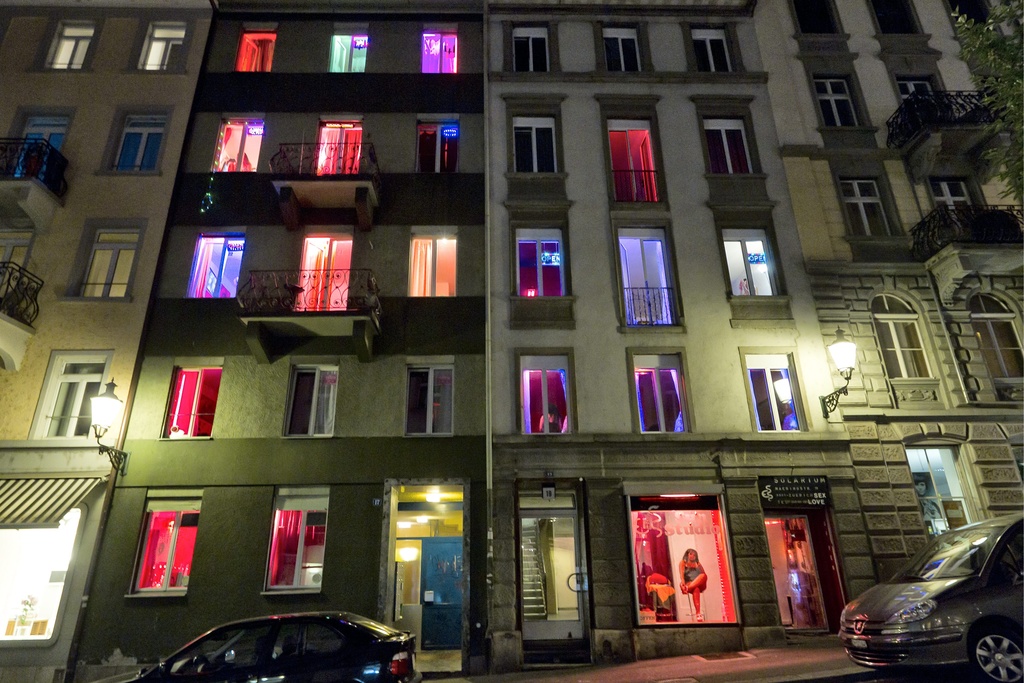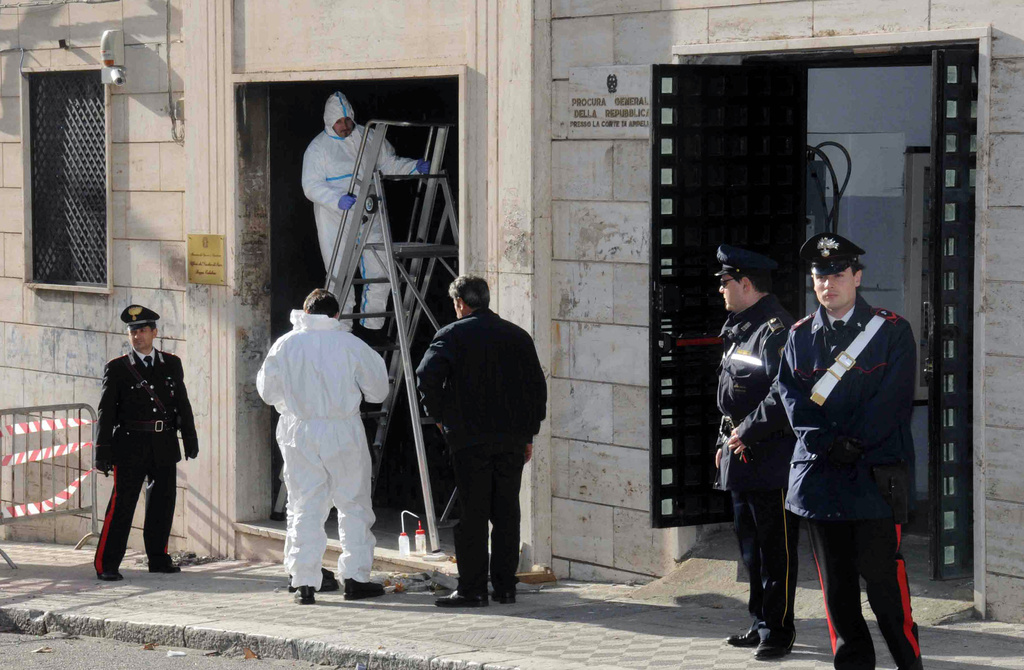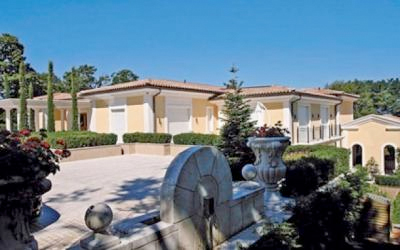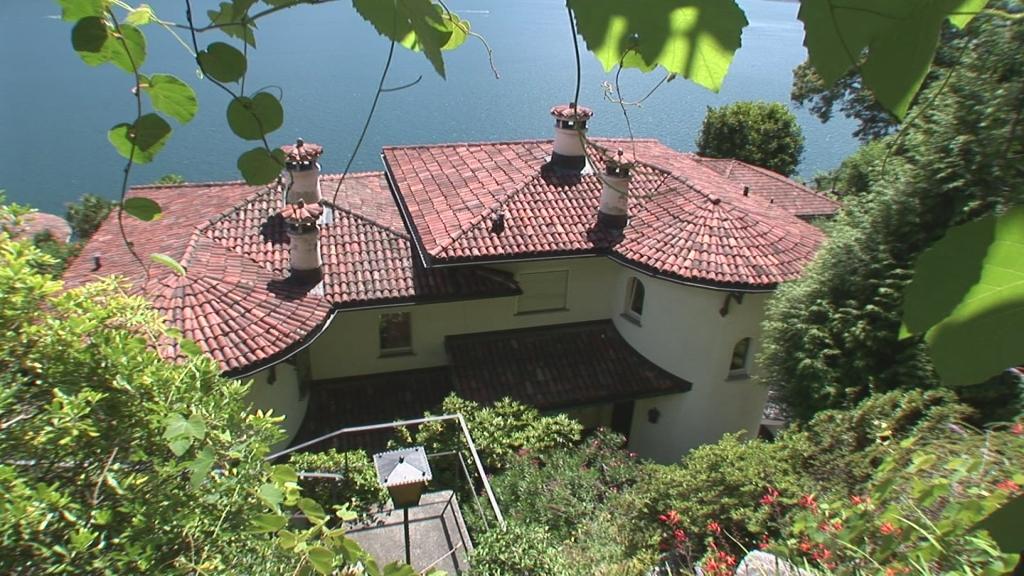Real estate moves to lower dirty money risks

The real estate sector is pushing to close possible money laundering loopholes by ensuring all transactions go through approved banks either in Switzerland or abroad.
They say such a measure is proactive and any money laundering risks remain anecdotal. As the authorities examine whether changes to Swiss law are needed, specialists warn of a significant problem.
According to the Swiss government, real estate is not used systematically for money laundering. But a “risk of abuse” exists, especially when deals are finalised outside the scope of Swiss money laundering law through foreign banks or during cash transactions without the presence of a financial advisor.
The Swiss Union of Real Estate Professionals has seized the opportunity to tackle the issue and on Thursday lodged a parliamentary motion via its president, Hugues Hiltpold.
“The idea is to ensure that all property transactions pass via an establishment that is controlled by the anti-money laundering law to ensure that money comes from either a Swiss bank or a foreign bank that is subject to the Swiss law so as to avoid suspect funds and the risk of money laundering,” the centre-right Radical parliamentarian told swissinfo.ch.
Hiltpold rejects the idea that the focus should rather be on real estate agents, notaries and other independent legal professionals who help buy and sell property being covered by Swiss money-laundering legislation, as recommended by the Financial Action Task Force (FATF) inter-governmental body and which is in force throughout the rest of Europe.
“Brokers don’t necessarily handle money, sometimes yes, but not systematically,” said the parliamentarian. “It would be better to modify the law so that we can follow the trace of the money and know who the buyers are.”
The government previously decided not to include real estate agents within the law, arguing that property transactions were generally carried out by financial intermediaries who were covered. There are concerns that their inclusion might lead to higher costs for the real estate sector.
Half measure
Social Democrat parliamentarian Carlo Sommaruga, who filed a recent motion on money laundering, said Hiltpold’s idea was “interesting” as it would not complicate the current control system.
But Ursula Cassani, a law professor at Geneva University, described it as a “half measure”.
“The full measure would be to include real estate transactions in the scope of the Money Laundering Act but it’s better than nothing,” she told swissinfo.ch.
“The real estate sector presumably prefers this kind of initiative as the anti-money laundering law involves lots of paperwork and responsibilities and they want the banks to bear the burden.”
Sommaruga said other ideas were to beef up the financial watchdog Finma and to extend the compulsory publication of real estate transactions, as practised in Geneva and a handful of other cantons, to the entire country.
Opaque scale
Since spring the finance and justice ministries have been examining whether changes to anti-money laundering legislation are needed to include provisions covering real estate.
The scale of the problem in Switzerland remains unclear, however.
The overall number of reported cases of money laundering continues to increase, reaching more than 1,000 last year – most submitted by the banking sector so not necessarily relating to real estate.
The 2010 federal police report declared that ‘Ndrangheta and other mafia organisations were increasingly moving their criminal activities, such as money laundering, to Switzerland. And numerous cases of money laundering were committed in 2010 via financial agents, it reported.
Organised crime author Stephanie Oesch says money laundering via real estate is certainly more than just a handful of examples.
“We know that the Russian and Italian mafias use real estate to launder money especially in the Lake Zurich, Lake Geneva and Ticino regions. We’ve seen it more visibly in the past five to ten years and it’s certainly increased in the past three to four years, especially in Zurich’s Gold Coast region,” she told swissinfo.ch.
Organised crime specialist Nicolas Giannakopoulos concurred: “What we are hearing in the Lake Geneva region are investments in businesses by the Italian mafia.”
Improved situation
The FATF says that, despite the real estate agent loophole, since 2005 Switzerland has been working to improve the situation.
Cassani said many suspicious transaction reports were transmitted to prosecutors for criminal investigation in Switzerland – 86 per cent in 2010 compared with only two or three per cent in France – while in Britain suspicious transaction reports “just disappear into a black hole”.
But Giannakopoulos criticised efforts: “The legislation is there. Afterwards the problem is finalising investigations and actual prison sentences. Unfortunately the Federal Prosecutor’s Office opens lots of cases that are based on facts but for many others there are no investigations – it’s hard to understand.
“Perhaps the new federal prosecutor will change things. It’s a problem of direction and vision.”
The replacement for former federal prosecutor, Erwin Beyeler, is due to be appointed this autumn and start work on January 1, 2012.
Mafia clans in Switzerland do not exert complete control over a particular area as is the case in regions around Naples and Sicily, from where the clans originate.
Nonetheless, there are indications that the organisations have made agreements among themselves regarding opportunities in particular areas of the country. Switzerland’s small size and multi-language environment ensures that mafia clans essentially operate around the Italian border regions.
The code of silence is applied as severely in Switzerland as it is in other countries. Witnesses are therefore rare, making it more difficult to prove criminal cases against the mafia. In addition, the mafia family structures are difficult for outsiders to penetrate.
Italian mafia organisations form relationships with specialists in the financial and banking sectors for their illegal activities in order to reinforce their presence in Switzerland.
Source: Federal Police Office, 2010

In compliance with the JTI standards
More: SWI swissinfo.ch certified by the Journalism Trust Initiative





You can find an overview of ongoing debates with our journalists here. Please join us!
If you want to start a conversation about a topic raised in this article or want to report factual errors, email us at english@swissinfo.ch.